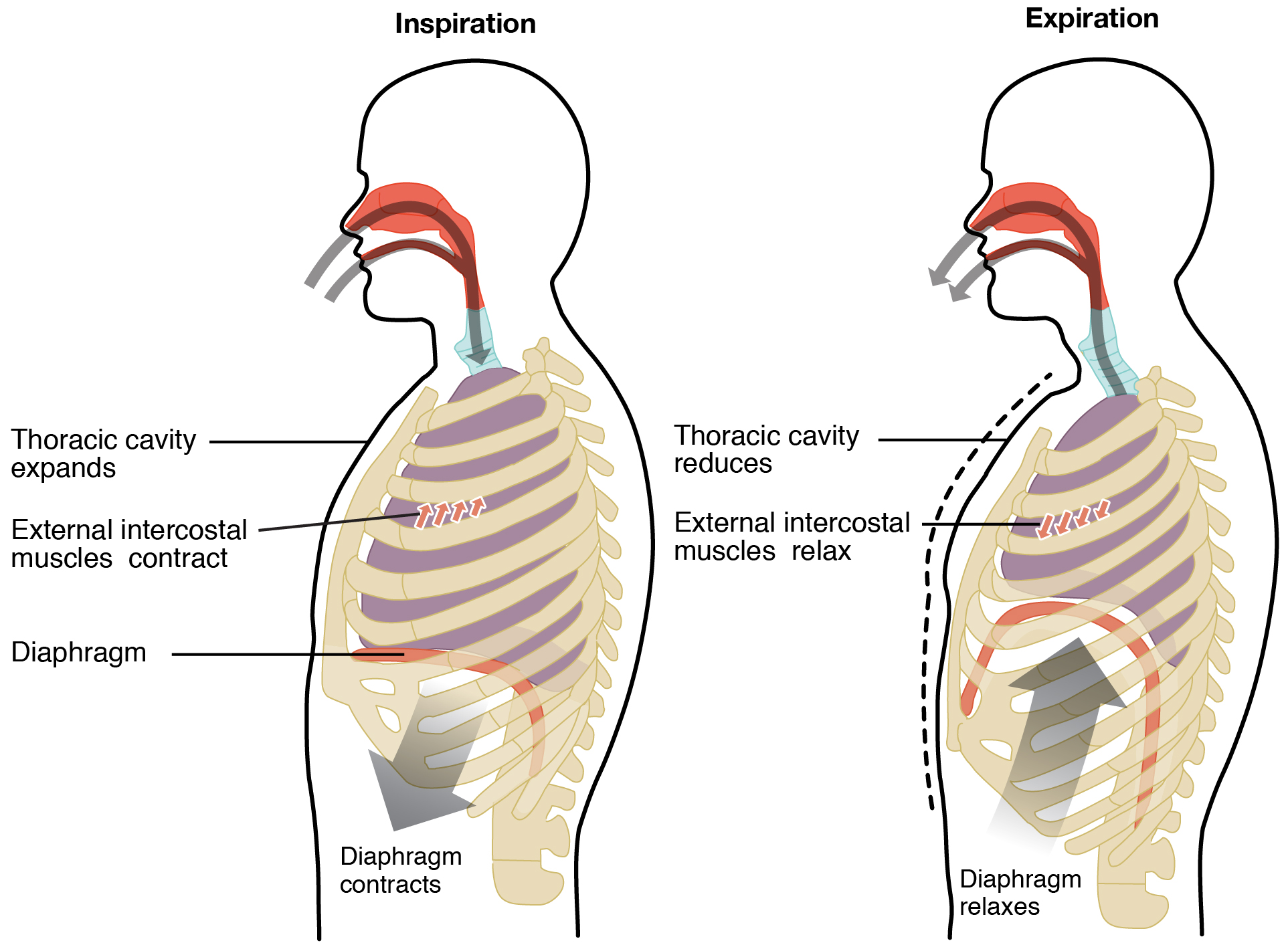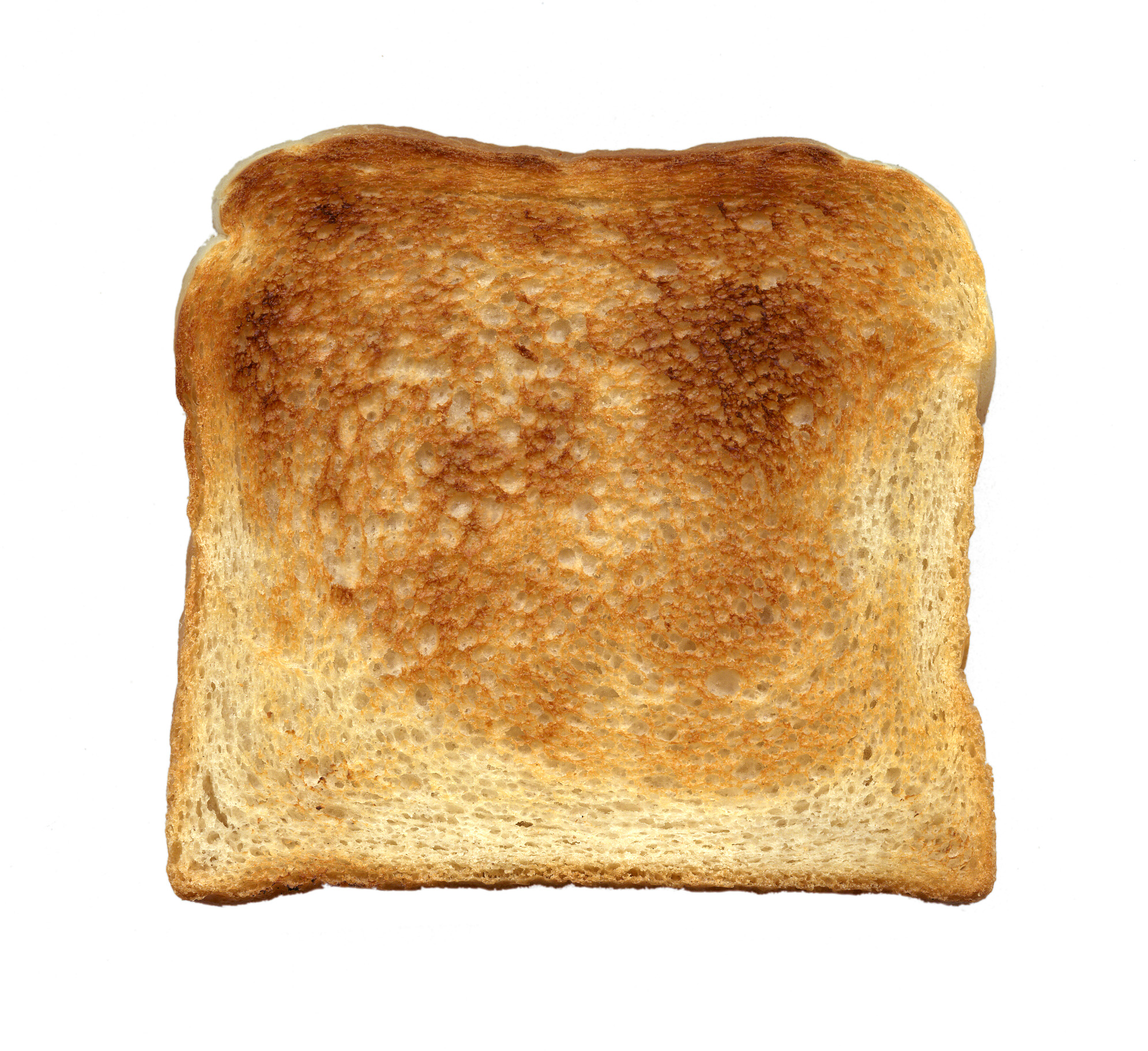For many people with COPD, a chronic cough is an ever-present feature in their lives. This can be very disruptive to daily life and leave you feeling tired and fatigued.
COPD causes a chronic cough for two main reasons: First, COPD causes inflammation in your throat, lungs, and airways, making them much more sensitive to getting triggered to cough. Second, COPD causes you to produce extra mucus, which obstructs your lungs and airways and triggers a phlegmy cough.
People with COPD also tend to suffer more often from other conditions that cause coughing, like pneumonia, asthma, and GERD.
Along with breathlessness, coughing is one of the most uncommon and unpleasant symptoms of COPD. Some people have a chronic cough that they have to deal with day in and day out, while others only experience severe coughing during exacerbations.
But whether you struggle with coughing every day or just when your symptoms get worse, you should know that you don't have to suffer hopelessly. While you probably won't be able to rid yourself of your cough for good, there are many effective cough suppression techniques that can reduce your cough and make it easier to manage.
In this article we're going to show you a variety of cough suppression techniques for COPD. We'll introduce you to an assortment of home remedies, lifestyle changes, and mucus reduction techniques that can help you control your cough and breathe unobstructed
Not All Coughing is Bad
![]()
Before we get into the cough suppression techniques, it's important to know that there are times when you shouldn't try to suppress your cough. Oftentimes, COPD causes a productive cough, which is a cough that produces sputum (a mixture of mucus and saliva).
A good rule of thumb is that if you can cough up mucus, then you should try to cough up as much as you can. You don't want to stop or suppress the coughing, otherwise the mucus will build up in your airways and make it even more difficult to breathe. The mucus has to come out at some point, so you might as well deal with it now!
If you have a wet cough that produces sputum, you can use controlled huffing and coughing techniques to move the mucus up and out of your airways and into your mouth, where you can spit it out. You can read more about controlled coughing techniques in our previous post here, and learn about other methods to loosen and get rid of mucus in your airways.
Controlled, productive coughing is important because it's the only way to clear your airways of mucus and prevent uncontrolled coughing later. Uncontrolled coughing, however, can be disruptive, uncomfortable, and even painful.
If you have COPD, uncontrolled coughing can leave you feeling exhausted and leave you with less energy for other activities. In this next section, we'll show you how you can reduce and suppress coughing with simple activities and home treatment methods.
Simple Activities to Reduce Coughing
Avoid Coughing Triggers

COPD makes your lungs and airways especially sensitive to airborne irritants. That includes particulates likes smog, dust, and barbecue smoke as well as biological molecules like bacteria, pollen, and mold.
These airborne irritants are common causes of coughing, and breathing clean, pure air is one of the best ways to prevent it. If you smoke, live in an area with high air pollution, or are sensitive to airborne allergens like pollen, you're much more likely to experience a chronic cough and other worsened COPD symptoms.
To avoid coughing as a result of exposure to contaminated air, its important to keep airborne irritants and allergens from building up in your home. Since most people spend a lot of time indoors, it's worth putting in some extra effort into cleaning and buying a high-quality air filter to remove particulates from the air indoors.
You should also avoid going any place where you might be exposed to smoke or other forms of air pollution. Stay away from wood-burning stoves, avoid breathing car exhaust on busy roads, and stay indoors when your local air quality or allergen report indicates caution.
Finally, scented products like perfumes, lotions, and other body products are irritating to many people who have COPD. If you notice that certain products and fragrances are making you cough or causing other respiratory symptoms, make sure to use only unscented products. You might consider asking other people who share your home or work space to do the same.
Avoid Foods that Worsen Symptoms

There are certain foods, like dairy, that you should avoid if you often have thick or excess amounts of mucus in your airways. For some people, dairy seems to increase mucus production and changes their mucus' consistency to be thick and sticky.
Not everyone is sensitive to this effect, however. But if you regularly experience thick mucus and coughing, it's worth testing whether dairy is a culprit by reducing your dairy consumption and paying attention to how it affects your congestion and cough.
Another category of foods to avoid is foods that contain a lot of salt. Too much salt can make you dehydrated, thickening the mucus in your airways and making you more likely to cough. It can also cause bloating, which increases chest discomfort and makes it even more difficult to breathe.
Drink Plenty of Water
If you have COPD it's important to avoid dehydration. If you don't drink enough water, it can make several COPD symptoms worse, including chest discomfort, coughing, and difficulty breathing.
This happens because, when you don't get enough water, the mucus in your lungs and airways dries up and becomes more thick and sticky. This thick mucus gets stuck in your lungs and airways, blocking airflow and triggering the need to cough.
Proper hydration prevents this by keeping your mucus thin and watery, that way it is less likely to cause blockages. Thin, runny mucus is also easier to cough up and drain out of your airways using postural drainage techniques (discussed later in this article).
Get Plenty of Exercise
If you have COPD, then you know that exercise is important. It's the only way to stay healthy and keep your body strong, and it's an effective way to reduce coughing, as well.
Regular exercise can improve many COPD symptoms and can make it much easier to breathe on a daily basis. That's because, in the long run, physical activity strengthens the muscles in your chest that you use to breathe.
This overall reduction in symptoms, increased ability to breathe, and increased tolerance for activity means less coughing and wheezing, too. However, exercise can also help your cough in the short term by helping mucus drain.
For some people, exercise helps their mucus flow and makes it easier to clear out of their airways. However, some people find that exercise actually increases their mucus production and makes coughing worse. To figure out how exercise affects you, pay attention to how you feel and how much you cough during and after moderate to light aerobic activity.
Practice Breathing

Shortness of breath, wheezing, and coughing can all make you more likely to cough. That's right, coughing itself causes more coughing because it irritates your airways and makes them even more sensitive to irritants and other coughing triggers.
This is why, when you have a coughing fit, it can be so difficult to stop coughing and get your symptoms back under control. The best way to break out of this negative cycle is to practice controlled breathing techniques.
Breathing techniques help you slow your breathing and get it back into a natural rhythm. Doctors recommend that you practice breathing exercises like diaphragmic breathing and pursed lips breathing every day, that way you can use them when needed to recover from periods of wheezing, breathlessness, and coughing.
Position Yourself for Proper Drainage

Excess mucus production is a major cause of coughing in people with COPD. One way to prevent this and reduce coughing is to position yourself so that the mucus drains out of your lungs and airways.
Postural drainage is a specific mucus-draining technique used to help COPD patients and people with other respiratory conditions breathe better. It involves positioning your body in specific ways that allow mucus to flow out of your lungs and airways and into your mouth, where you can spit it out.
There are several recognized postural drainage positions, and each helps drain a different section, or lobe, of your lungs. Most positions require lying down on a soft surface and using pillows to elevate certain parts of your body.
Here is a link to more information on postural drainage positions.
Chest and Back Percussion
Percussion is a method used to loosen up mucus in the lungs so you can more easily cough it up. This allows you to clear out phlegm that might obstruct your breathing or cause a fit of coughing later.
To do chest percussion, you lie flat on your back and have someone tap firmly and rhythmically on specific places on your chest. After a few minutes, you sit up and do controlled coughing techniques until you are able to get the dislodged mucus out of your lungs.
Back percussion is similar to chest percussion, except you lie on your chest and have someone tap on specific points on your back. To learn more about chest percussion and the correct spots to tap, see this guide to chest physiotherapy from the Cystic Fibrosis Foundation.
Elevate Your Head at Night

Keeping your head and neck elevated at night is an effective way to prevent coughing and breathing difficulties while you sleep. It helps mucus drain out of your airways so it doesn't pool in your throat and obstruct your breathing at night.
Before you go to sleep, prop up your head and neck with a pillow or two to keep mucus from building up in your throat and upper airways. This will help you avoid nighttime coughing and help you and your family sleep more comfortably.
Home Remedies for Coughing
Get a Humidifier

Dry air is a very common trigger for coughing, especially if you have COPD. If you live in a dry climate or experience worse coughing in the winter, the cold weather could be what's making your cough and other COPD symptoms worse.
When you breathe air that is too dry it irritates your airways and triggers a coughing reaction. When you breathe in moist air, however, it lubricates your airways and allows air to pass through without discomfort.
The best solution to dry indoor air is to get a humidifier for your home. Running a humidifier increases the amount of moisture in the air and makes it easier and more comfortable to breathe.
You can get either a whole-house humidifier for your entire home or a smaller, portable humidifier for a single room or small area. Just make sure to read the information on the box to make sure that the humidifier you get is big enough for your space.
Many people find that using a humidifier in their bedroom at night reduces their COPD symptoms and makes it easier to breathe while they sleep. However, if the humidity gets too high then it can actually make your symptoms worse. Most doctors recommend that you keep the humidity in your home at about forty percent for the best results, and to not let the humidity rise above fifty percent indoors.
Breathe Moist Air
If you're suffering from an acute coughing fit due to an irritated throat or airways, try taking a hot shower or bath. This helps suppress coughing by moistening and soothing your airways so they are less irritated and sensitive to coughing triggers.
If you don't want to go through the hassle of taking a whole shower or bath, you can breathe in moist air from other sources. You can inhale the steam rising from a hot drink or by standing over a pot of simmering water to get the same effect as a steamy shower.
Breathe Still Air
Moving air, like wind or air stirred up by a fan or heater, can sometimes make coughing worse. Moving air can tickle and irritate your throat and nasal passages, which are particularly sensitive to irritation in people with COPD.
To prevent this, turn off any overhead fans, HVAC ventilation, heaters, or other air-stirring appliances whenever you feel particularly sensitive to coughing. If you remove the air currents indoors and stay out of the wind, you will be less likely to cough and experience other respiratory symptoms.
Drink the Right Stuff

Along with drinking water, there are certain foods that might be able to suppress coughing by reducing the amount of mucus in your airways. For example, one group of researchers found that drinking pineapple juice can help your body get rid of mucus in your lungs, although no other scientists have yet verified these results.
Lemon and honey is another common and potentially effective home remedy for coughing. The acidity from the lemon helps kill bacteria clinging to the walls of your throat and the honey acts as a thick, soothing liquid that soothes your throat and prevents irritation.
Eat to Clear Your Throat

Sometimes thick mucus gets stuck in the folds and the walls of your throat and just won't let go. This gives you an uncomfortable, phlegmy feeling and can obstruct airflow when you breathe.
Sometimes a few gulps of water or a warm drink like coffee or tea can loosen mucus and clear it up, but it's often not enough to do the job. Extra fluids will thin your mucus if you wait and give it time, but you can sometimes get more immediate relief by using solid food to physically brush it off.
Toast is a perfect food for this purpose. It's soft and spongy, and yet rough enough scrape stubborn mucus from the back of your throat. So if you have a phlegmy throat that's bothering you and won't go away, try eating a piece of toast to clear it up.
Medical Remedies for Coughing

When all else fails, you might need to turn to pharmaceutical medications to manage your cough. If you talk to your doctor, he can prescribe daily bronchodilators, recommend over-the-counter medications, or suggest other treatments to help you reduce coughing.
Bronchodilators
Bronchodilators help widen your airways so that it's easier to get mucus out. They relax and open up your airways, bypass blockages, make it easier to breathe, and make it easier to move mucus up and out of your lungs when you cough. Many doctors recommend using bronchodilators before trying other mucus clearance techniques like percussion or postural drainage.
Cough Suppressants

Some studies show that cough suppressant medications like codeine can help people with COPD better control their chronic cough. However, cough medications are not always effective, and you should always talk to your doctor before taking any over the counter medicine.
VapoRub
This is a common remedy for congestion and coughing that could help reduce coughing for people with COPD. You simply rub the thick, menthol-infused cream on your back, throat, and/or chest, and you should feel its effects within minutes.
Throat Lozenges
Throat lozenges, or cough drops, are often an effective way to suppress coughing when you have an irritated throat. Cough drops coat your throat to prevent irritation and usually contain a soothing compound like menthol which can reduce congestion and soothe your throat.
Positive Expiratory Pressure
If you have trouble with breathlessness and coughing while you sleep, you might need to use a positive expiratory pressure device at night. This is a medical device with a tube that connects to a breathing mask that fills your airways with pressurized air.
This pressurized air helps keep your airways open so they don't collapse and obstruct your breathing while you sleep. The widened airways also make mucus less likely to build up and block your airways, preventing coughing and making it easier to breathe.
High Frequency Chest Wall Oscillation
This is a technique for which you need a special vest that inflates and vibrates against your chest and back. This works similarly to chest percussion by loosening mucus in your lungs and airways to make it easier to cough up.
You can do high-frequency chest wall oscillation for several sessions of several minutes each. In-between each session, use controlled coughing techniques to dislodge the loosened mucus and cough it up and out of your body.
Conclusion
Dealing with a chronic cough is hard. It makes it difficult to exercise, sleep, and participate in the activities that you enjoy.
Luckily, with these techniques and home remedies you can reduce your coughing and prevent it from taking a major toll on your life. If you eat a healthy diet, use mucus-draining techniques, and try the other tips in this article you'll likely find your cough much easier to manage.
Treating your cough makes it easier to exercise, breathe, and get more joy and fulfillment out of your life. Start using these cough suppression techniques today to get yourself back on the road to feeling better.


.png)





